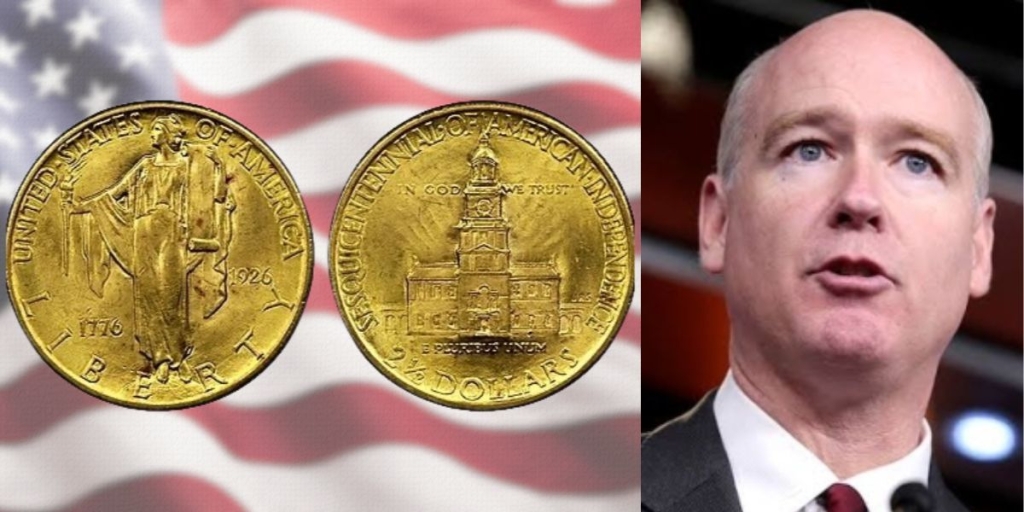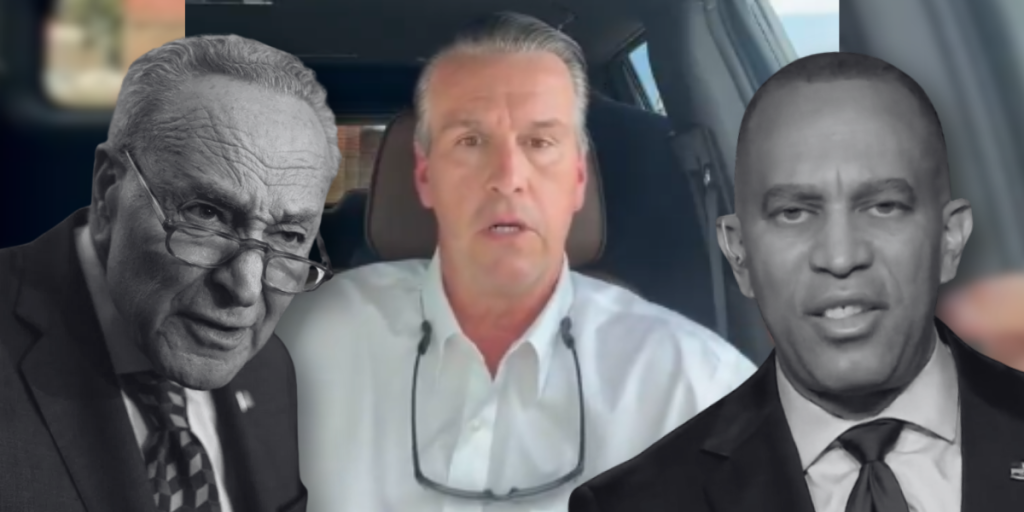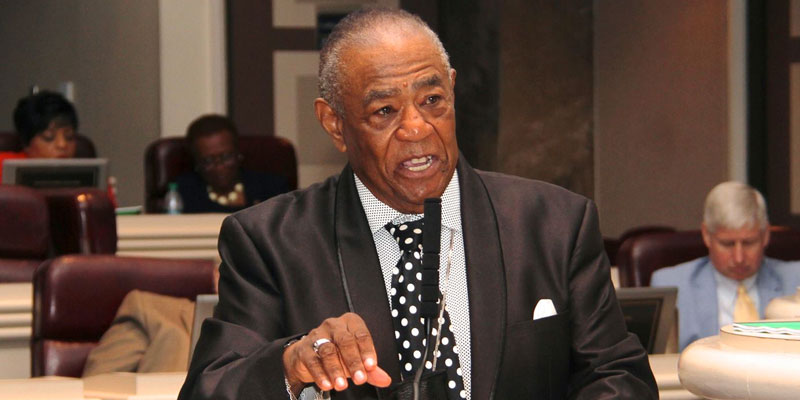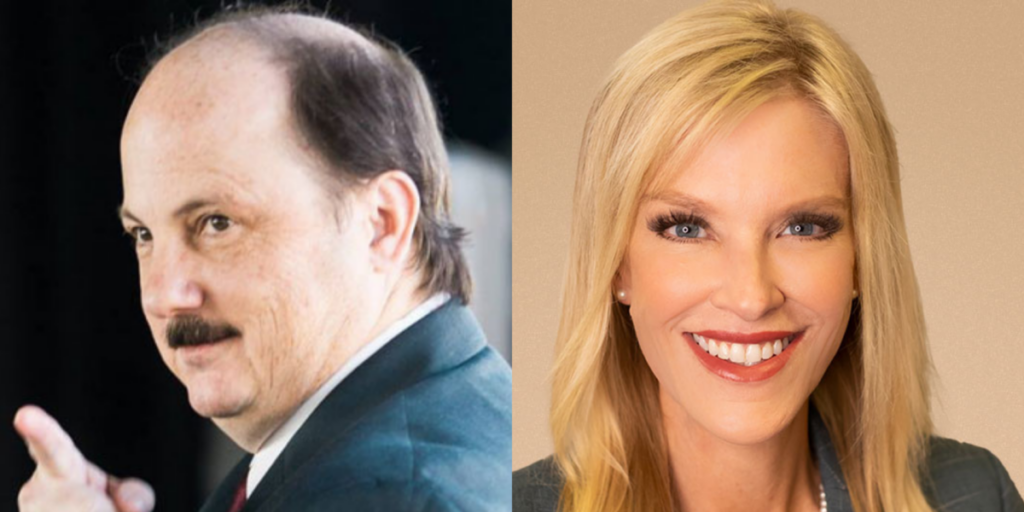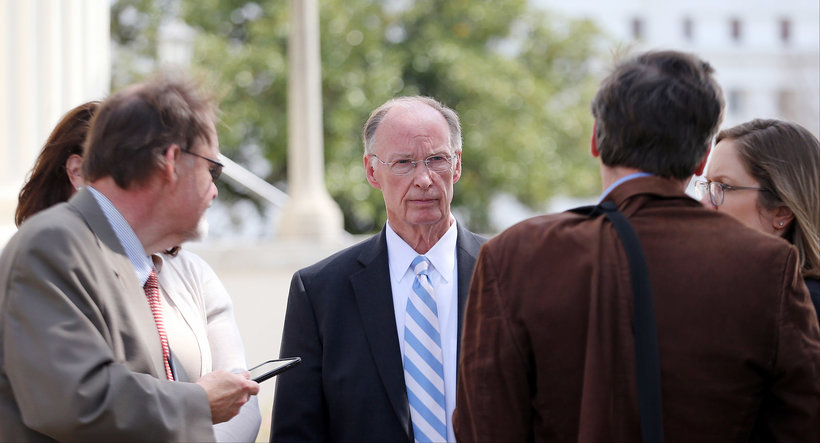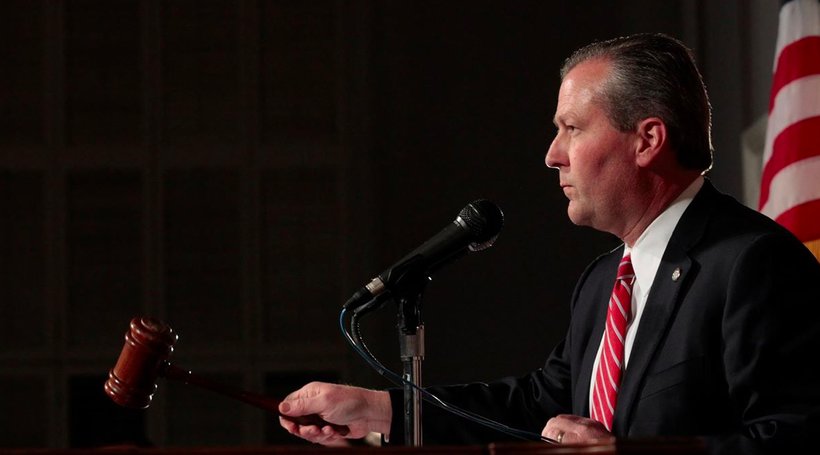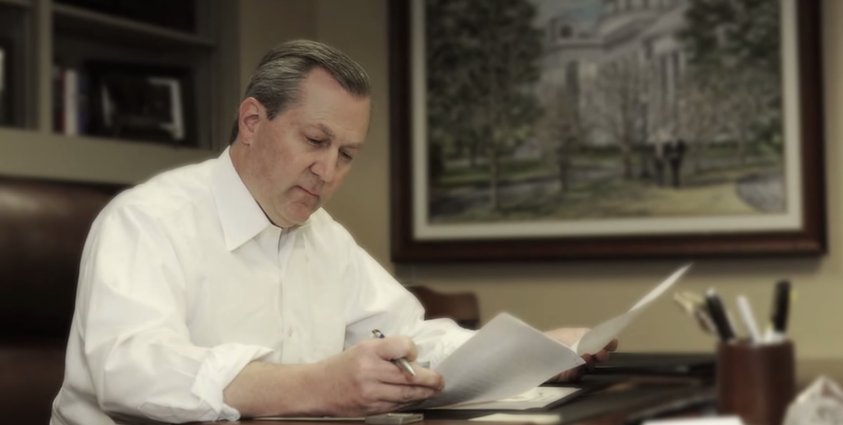
The prosecution in the State of Alabama’s case against Alabama House Speaker Mike Hubbard on Friday filed the most detailed documentation to date regarding their case against him. The filings were the result of Mr. Hubbard’s legal team requesting more detailed descriptions of the charges against their client.
In short, Mr. Hubbard has been charged (23 felony counts) with using his official office for personal gain, both during his time as Chairman of the Alabama Republican Party and subsequently as Speaker of the Alabama House of Representatives.
As ALGOP chairman, the prosecution alleges that Mr. Hubbard obtained “over one million dollars in personal gain” for himself and two of his companies, Craftmaster and the Auburn Network.
As Speaker of the House, the prosecution’s allegations include Mr. Hubbard voting in favor of legislation that would benefit a consulting client of his (Counts 5 and 6); using his office to obtain lucrative consulting contracts with numerous companies (Counts 7-14), and soliciting “principals” — businessmen who employ lobbyists — for what the prosecution describes as “financial favors,” including investing in one of his companies and helping him obtain more consulting clients (Counts 20-23).
Mr. Hubbard’s defense team blasted the documents released Friday for being “bizarre, improper, and non-responsive.”
“It is replete with false statements and empty rhetoric,” an attorney for Mr. Hubbard said of the prosecution’s document release. “Apparently designed to further mislead the public, the filing demonstrates a basic lack of knowledge about the state ethics laws and the relevant facts in this matter.”
With all of that in mind, here are 10 things we learned from the filing:
1. The prosecution has combed through literally millions of pages of information during the course of their investigation.
On February 17, 2015, the State produced emails, bank records, business records, witness statements, and other documents totaling over 2.5 million pages to Hubbard. The State’s production, taken with the indictment is more than sufficient to inform Hubbard of the nature of the charges against him.
2. Tensions were high in 2010 over the Alabama Republican Party using Hubbard’s printing company.
Majority Strategies, a Florida company that designs political mailers, expressed frustration that their retaining the ALGOP contract was contingent on subcontracting with Hubbard’ printing company, Craftmaster, who they said did not offer the lowest available printing price.
Majority Strategies executive Brett Buerck laid out his concerns in an email to a co-worker:
Based on a message I got from Hubbard last night, our relationship with them is still very tenous [sic]. And because I am a greedy (expletive) I would rather us swallow our pride and also make a lower profit margin in order to keep the client rather than getting black-balled in a state because we think the printer is making too much money and we don’t like being forced to use them.
3. Hubbard claimed his job as Speaker was making it difficult for him to make a living.
Emails reveal that Mr. Hubbard’s employer, the Auburn IMG Network, asked him to choose between working for them and being Speaker of the House because politics were, in their view, taking up too much of his time. He chose to remain Speaker of the House, so he and the company parted ways.
As a result, Mr. Hubbard aggressively pursued consulting contracts, on numerous occasions asking for assistance from lobbyists and principals.
Additionally, Mr. Hubbard raised $600,000 in investments to save his printing business.
“Failure is not an option as it means personal and political ruin,” he said in an email to prominent businessman and former congressional candidate Will Brooke.
4. Hubbard was frustrated that companies balked at hiring him because he was an elected official.
In another email to Will Brooke, Mr. Hubbard said:
It is ironic that my quest to change history and [g]ive Alabama a pro-business legislature has resulted in issues in my own personal business life. It is amazing how folks who urged me to be the leader to overthrow the bad guys in Montgomery now don’t want to talk with me.
5. Hubbard suggested longtime friend and confidant Gov. Bob Riley — now a registered lobbyists with his own firm, “Bob Riley and Associates” — should hire him.
In an email to Gov. Riley, Mr. Hubbard said:
Can I just come work for BR&A? I need a job and this way I would work someone I respect….
This was not possible if Gov. Riley was to remain a registered lobbyist, so Mr. Hubbard suggested he de-register so Bob Riley and Associates could become a client of Mr. Hubbard’s company.
I still believe that you are a “strategic business consultant”, not a lobbyist. You could hire a lobbyist for BR&A – a Riley Team person who will do it for virtually nothing – which will allow BR&A to hire Auburn Network, Inc. to handle your marketing needs. We could do media buying, polling, focus groups, design work, printing, anything you need.
6. Hubbard considered resigning as Speaker of the House.
In another email to Will Brooke, Mr. Hubbard said:
As you know, my concern is financial and the fact that serving as Speaker consumes a enormous amount of time and generates virtually no income. I have been in discussions with Governor Riley and believe I would have an opportunity to work with him and his company if I were to give up being Speaker and resign from the Legislature. Although I believe I am making positive changes in Montgomery, I need to think of my obligations to my family. Please keep me in your thoughts as I make this decision.
7. Riley told Hubbard he should refrain from suggesting he may step down.
In an email to Mr. Hubbard, Gov. Riley said:
Quit telling people you may have to step down as Speaker due to financial concerns.
8. Hubbard ultimately became a well paid consultant for numerous companies.
Southeast Alabama Gas District paid him $12,000 a month as an economic development consultant, later dropping it to $7,500. The Alabama Pharmacy Cooperative paid him $5,000 a month as a consultant. Edgenuity Inc. paid him $7,500 a month as a consultant. CV Holdings paid him $10,000 per month as a consultant
9. Riley advised Hubbard that he may have to choose between being wealthy and being an elected official.
In an email to Mr. Hubbard, Gov. Riley said:
I understand—believe me – I went 14 years on a Gov payroll and it was a challenge. Now and from now on you and I are going to be suspect in everything we do. However the ability to make great change is given to few people and you are one of the rare ones that can make it happen. Again question now is DO YOU “WANT” to be Gov —-or—make alot of money : good thing is you could do either but I am not sure it’s possible to do both.
10. Hubbard’s business troubles were often the result of tough ethics laws he and Riley once championed.
In an email to Gov. Riley, Mr. Hubbard said, tongue in cheek:
…those ethics laws. Who proposed those things?! What were we thinking?
Like this article? Follow me on Twitter and let me know what you think.
— Cliff Sims (@Cliff_Sims) December 3, 2014




